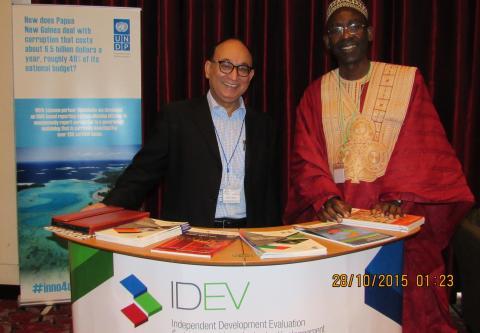
The 4th International Conference on National Evaluation Capacities (NEC) opened Wednesday morning in Bangkok, Thailand. Organized by the Independent Evaluation Office (IEO) of the United Nations Development Program, the conference welcomed about 430 participants from about 100 countries, including the Independent Development Evaluation (IDEV) function of the African Development Bank (AfDB).
The biennial conference seeks to bridge the gap between the recognition that evaluating the performance of public policy is an important instrument for good governance and the actual implementation, use and sustainability of monitoring and evaluation systems, processes and tools on the ground. The AfDB’s Evaluator General Rakesh Nangia chaired a session on addressing gender equity and human rights in evaluations of public policies and programs, and IDEV is sharing a number of its publications and knowledge products.
“National evaluation capacities are increasingly critical to countries’ overall ability to capture and demonstrate results to a variety of constituencies and to promoting learning and enabling decision makers to make informed decisions and plan strategically,” the 2013 NEC conference held in São Paulo, Brazil, concluded (click here for the 2013 proceedings).
The NEC 2015 intends to build further on this by discussing how best to strengthen national evaluation capacities to enable countries to achieve development effectiveness, particularly within the context of the Sustainable Development Goals adopted at the UN General Assembly in September 2015. This is also relevant for the regional member countries of the AfDB.
Wednesday's official opening will be followed by three days of substantive discussions around the theme of the conference, “Blending Principles with Development Practices to Change People’s Lives” - click here for the official program.
The NEC 2015 is being held concurrently with the Global Assembly of the International Development Evaluation (IDEAS) to enable cross-fertilization of knowledge and ideas.

